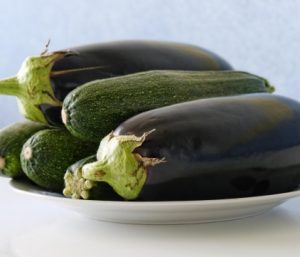Is It Normal To Gain Weight After Going Vegetarian?
 Adopting a vegetarian diet may improve cardiovascular health, lower blood pressure and reduce diabetes risk, according to the American Heart Association.
Adopting a vegetarian diet may improve cardiovascular health, lower blood pressure and reduce diabetes risk, according to the American Heart Association.
Yet when it comes to plant-based eating and weight management, the jury still seems to be out.
Some studies suggest that vegetarian eating helps with weight loss, but many people find they actually add pounds when cutting out animal products.
Compensation
One of the main reasons you might gain weight on a vegetarian diet is the concept of compensation – when you reduce the consumption of certain foods, you may increase consumption of other foods. For vegetarians, cutting out animal products may mean an increased consumption of carbohydrates (pasta, rice, etc.) or a higher intake of fruit. Both of these food groups can lead to weight gain if consumption is too high, as carbohydrate-rich foods raise blood sugar and tend to cause cravings for more carbohydrate-based foods.
The fat factor
Animal products also tend to have a fair amount of fat. Fat helps to curb appetite and leads to feelings of fullness. Without animal products, vegetarians might not be eating adequate levels of fat and could be more prone to overeating.
Protein
While there are plenty of ways to get plant-based sources of protein in the diet, many of these sources of protein (like beans or nuts) are also higher in carbohydrates and calories than lean sources of animal protein.
If a vegetarian isn’t getting enough protein – even from plant-based sources – he or she will be less likely to stay full for long periods of time after eating. This can lead to frequent snacking, which increases total caloric consumption. Even just a few hundred extra calories a day can lead to weight gain in the long run.
Prevention
If you don’t want to gain weight being vegetarian, it’s important to expand your food horizons past carbohydrate-based meals. Increase consumption of vegetables, which are naturally low in calories but high in fiber and water – which will keep you full. Get adequate amounts of protein and healthy fat at each meal, preferably. And if you’re a lacto-ovo vegetarian or pescatarian, incorporating some animal products into your diet may help you avoid weight gain, too.
American Heart Association
 Eating Disorder Self Test. Take the EAT-26 self test to see if you might have eating disorder symptoms that might require professional evaluation. All answers are confidential.
Eating Disorder Self Test. Take the EAT-26 self test to see if you might have eating disorder symptoms that might require professional evaluation. All answers are confidential.